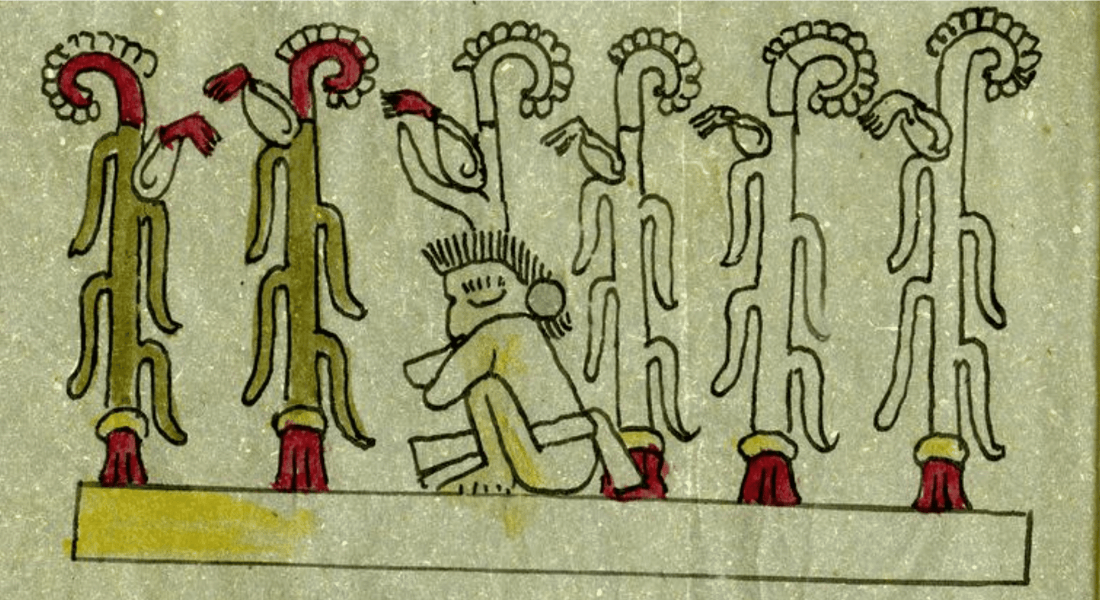What was the adaptive role of the plant microbiome during domestication? We are studying the coevolution of Phaseolus beans and their root microbes throughout domestication.
Plant Palaeogenomics Group
The plant palaeogenomics group focuses on reconstructing the evolutionary history of plants and their microbes throughout the domestication process using population genetics, comparative genomics and ancient DNA.

The domestication of plants fundamentally transformed human lifeways. Through domestication, we shaped plants and their genomes into crops adapted to almost our every need, and in doing so, we transformed Earth's landscapes.
In our group, we are interested in understanding the evolutionary processes driving plant domestication. We focus on characterising demographic histories, dispersion trajectories, selection signatures, and plant-microbiome coevolution through comparative genomics and ancient DNA.
Demographic history. Under the plant domestication model, we expect a sharp reduction of genetic diversity associated with the domestication bottleneck. By comparing ancient and modern genomes, we investigate the magnitude and rate of change in genetic diversity over time and across geographic regions.
Dispersion trajectories. Domestication often involved moving plants beyond their native geographical ranges. By analysing the genomic ancestry of ancient and modern plants, we reconstruct the dispersion routes of domesticated plants, shedding light on how human activities spread crops worldwide.
Selection signatures. Plant domestication represents one of the strongest examples of selection in nature. The process of selection during domestication was twofold—plants had to adapt to new environments as humans moved them away from their native habitats, while we simultaneously selected for traits beneficial to us. By comparing the genomes of wild and domesticated plants, as well as ancient plants in intermediate stages of domestication, we investigate the genomic signatures of these adaptations. By reconstructing the chronology of selection during domestication, we identify local signatures of environmental adaptation and explore how human dietary and cultural preferences influenced crop evolution over time.
Plant-microbiome coevolution. Plants rely heavily on their microbiomes to contend with environmental changes and pathogens. Legumes, in particular, have a close evolutionary relationship with their root bacteria. By characterising the genetic diversity of the root microbiome in legumes and contrasting it with the domestication history of their hosts, we study plant-microbe coevolution and investigate the role of the root microbiome in facilitating adaptation during domestication.
Reconstructing the history of domesticated plants is essential for understanding the origins of modern agriculture and for mapping a path forward for the development of better agricultural systems. By understanding how ancient crops and their microbes adapted to different environments during domestication, we hope to inform the development of more resilient crops and contribute to more sustainable agricultural practices.
Ramos-Madrigal J, et al. 2025. The genomic origin of early maize in eastern North America. Cell, Volume 188, Issue 1, 33 - 43.e16
Ramos-Madrigal J, et al. 2016 Genome Sequence of a 5,310-Year-Old Maize Cob Provides Insights into the Early Stages of Maize Domestication. Current Biology. 26(23):3195-3201.
Ramos-Madrigal J, et al. 2019 Palaeogenomic insights into the origins of French grapevine diversity. Nature Plants. 5(6):595-603.
Ramos-Madrigal J, et al. 2021. Genomes of Pleistocene Siberian Wolves Uncover Multiple Extinct Wolf Lineages. Current Biology. 31(1):198-206.e8.
Novo Nordisk Foundation
Projects
Bean Hologenomics
Maize palaeogenomics
How did we transform a weedy grass into a perfect crop? We are reconstructing maize dispersion patterns and chronology of selection throughout domestication.
Group members
| Name | Title | Phone |
|---|
| Matteo Moschini | Visiting Erasmus Master Student | matteo.moschini@sund.ku.dk |

